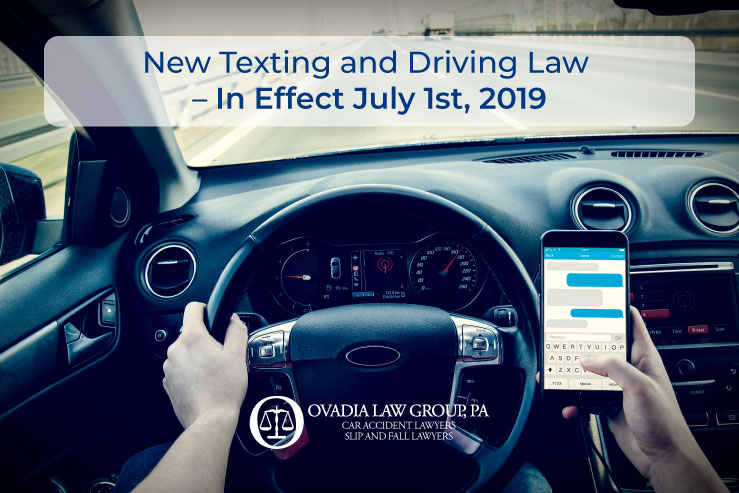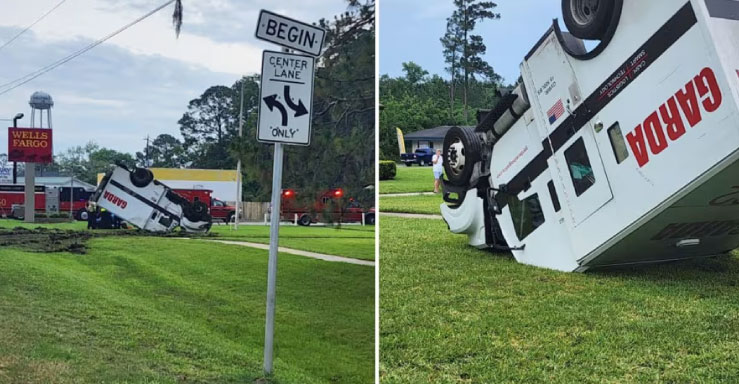In Florida alone, there were 52,000 car crashes caused by distracted driving in 2018. With these staggering statistics, Florida lawmakers have passed a bill that will increase the penalties for texting while driving. It will be moving from a secondary offense to a primary offense. This will allow officers to pull over violators and give them citations without an initial purpose.
When Gov. Ron DeSantis signed this bill on May 17th, he made Florida the 45th state to make texting while driving a primary offense. Some Florida citizens have mixed feelings about this new law. Some believe that because of the damage distracted driving can cause, the fines should be higher. Many hope that giving stricter penalties for this offense will make a positive difference.
Details of The New Law
Currently, violators have to be pulled over for something else to be written up for texting while driving. With the new law, drivers can be pulled over for just being on their phone alone. The fines for this begin at $30. If you are in a work zone or school zone the penalty will increase. Before this fully goes into effect, drivers are given a three-month grace period to get used to the changes. During this grace period, drivers can be pulled over for texting while driving, but will only receive a written or verbal warning.
Drivers should keep their phones out of their hands for public safety as well as the new law. Distracted driving has led to many crashes and deaths. Drivers are responsible for keeping themselves and those around them safe. Law enforcement will give them the proper punishments if they aren’t able to follow these new laws.
What Is Exempt under the New Law?
• Having a Device out While Stationary or at a Stoplight
• Emergency Personnel
• Reporting a Crime or Emergency
• Receiving Information Regarding Navigation or Operation
• Traffic or Weather Alerts
While stationary, it is still helpful to remain aware of your surroundings. When placing a report about a crime or emergency it is for the best to pull over. This way you can avoid potentially causing another emergency. It is safer to use “hands-free” or wireless communications to make phone calls or access your phone. Keeping both hands on the wheel and eyes on the road is very important when driving. Law enforcement does encourage drivers to mount their device on their dashboard if they need to have it out for any of these reasons. This can help eliminate the need to look away from the road.
Data Will Be Collected from Violators
Keeping track of the offenders will make it much easier to understand the extent of these violations. These statistics can help the state representatives see if the law has changed things for the better. Hopefully, these results will eventually show fewer accidents. Whether or not there are more violations, it will be a great improvement to see less damage caused by texting and driving.
Penalties for Texting and Driving Will Increase
Along with fines beginning at $30, points will be added to violators licenses. From there the violator will have to follow the proper procedures to remove these points. It is also important for drivers to remember that if they pay the ticket that is admitting to guilt. If you believe that you are innocent, you can contest the ticket in court.
Differences between a Secondary and Primary Offense
A secondary offense is something a driver can only receive a citation for after they have already been pulled over for something else. Some examples of this are not wearing a seatbelt or an illegal window tint.
A primary offense is an offense that an officer can pull someone over. From there they can then issue a violation for that specific offense. So, this means that after the new law goes into effect, those caught texting while driving can be pulled over for this offense alone. Some other examples of this are driving over the speed limit, or not stopping at a stop sign.
If you have any questions about the new law or need a personal injury lawyer for your case, call Ovadia Law Group today at 1-800-378-1242 and receive a free consultation from one of our experienced lawyers.





